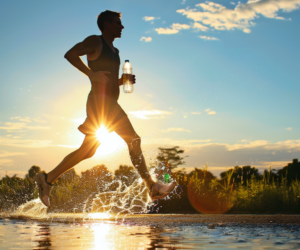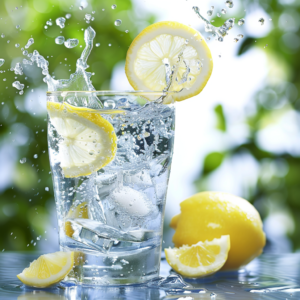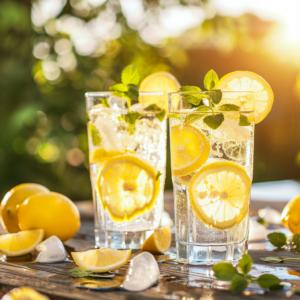
Hydration is crucial, especially during the hot summer months. Water is essential for various bodily functions, such as regulating temperature, maintaining joint lubrication, and facilitating nutrient transport. Proper hydration helps prevent dehydration and heat-related illnesses, which can pose significant health risks.
Essential Highlights
Ensure you drink sufficient water throughout the day. The general recommendation is to drink at least eight 8-ounce glasses daily, but individual needs may vary based on factors like activity level and climate. Carry a reusable water bottle with you to encourage regular hydration.
Incorporate foods with high water content into your diet. Fruits like watermelon, strawberries, and oranges, as well as vegetables such as cucumbers, lettuce, and tomatoes, can help keep you hydrated. These foods provide additional nutrients and electrolytes that support overall health.
Caffeine and alcohol are diuretics that can lead to dehydration. Limit your consumption of coffee, tea, and alcoholic beverages, and balance them with water to mitigate their dehydrating effects.
Check the color of your urine to gauge your hydration status. Clear or light yellow urine generally indicates good hydration, while dark yellow or amber-colored urine suggests that you need to increase your fluid intake.
If you have trouble remembering to drink water, set reminders on your phone or use a hydration app. These tools can prompt you to take regular sips and help track your daily water intake.
Minimize excessive heat exposure to reduce the risk of dehydration. Wear lightweight clothing, seek shaded areas, and use fans or air conditioning to stay cool. This can help lower your body’s need for extra water to regulate temperature.
Being aware of dehydration symptoms is crucial for early intervention. Common signs include:
Severe dehydration can lead to more serious symptoms like rapid heartbeat, sunken eyes, and fainting. Immediate rehydration and medical attention are necessary if these symptoms occur.
To prevent dehydration, particularly during hot weather or physical activity, follow these guidelines:


Water is indispensable for numerous bodily functions. It helps regulate body temperature through sweating and breathing, aids digestion by forming saliva and breaking down food, and maintains joint lubrication and muscle function. Adequate hydration also supports cognitive functions and emotional well-being.
Proper hydration is essential for physical performance. Dehydration can impair endurance, increase fatigue, and reduce coordination. Athletes and individuals engaging in strenuous activities should monitor their hydration levels to maintain optimal performance and prevent heat-related issues.
Different age groups have varying hydration needs. Children and older adults are particularly susceptible to dehydration. Children may not recognize thirst as readily, and older adults may have a diminished sense of thirst. Ensuring these groups consume adequate fluids is vital, particularly in hot weather.
Maintaining proper hydration during the summer is vital for overall health and preventing heat-related illnesses. By adopting effective hydration practices, recognizing dehydration symptoms, and understanding the science behind hydration, you can enjoy a safe and healthy summer. Remember, staying hydrated is not just about quenching thirst—it’s about supporting your entire body’s well-being during the hottest months of the year.
This is for informational purposes only. For medical advice or diagnosis, consult a professional.
